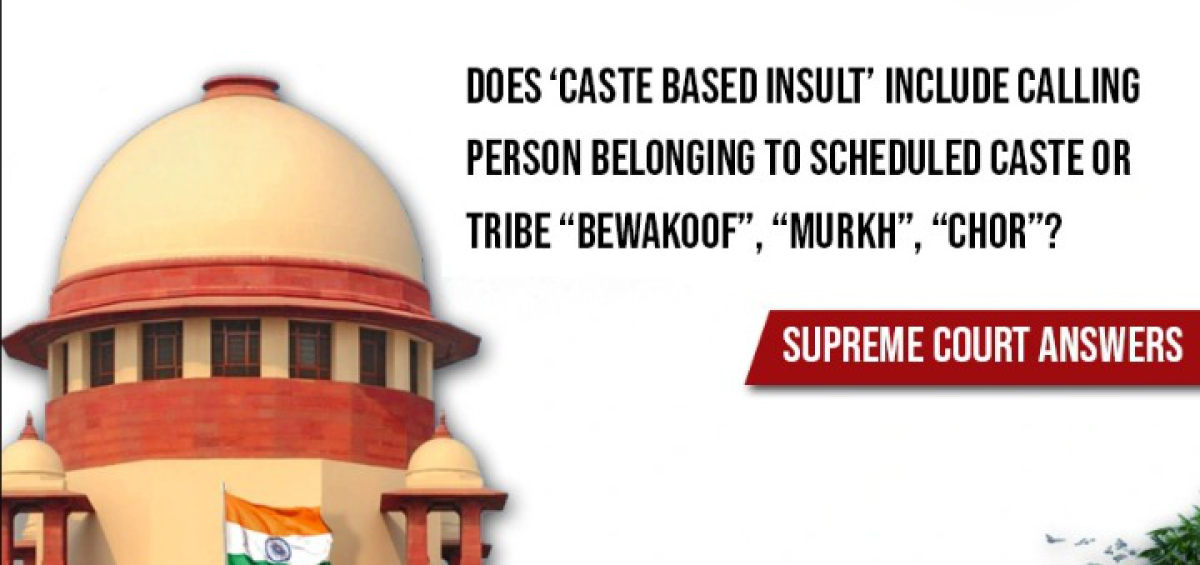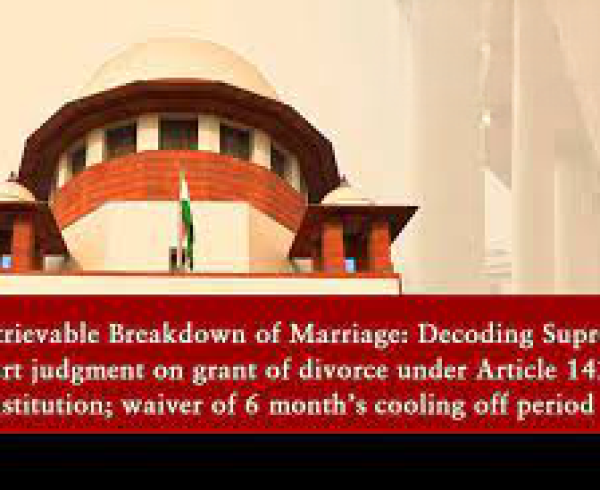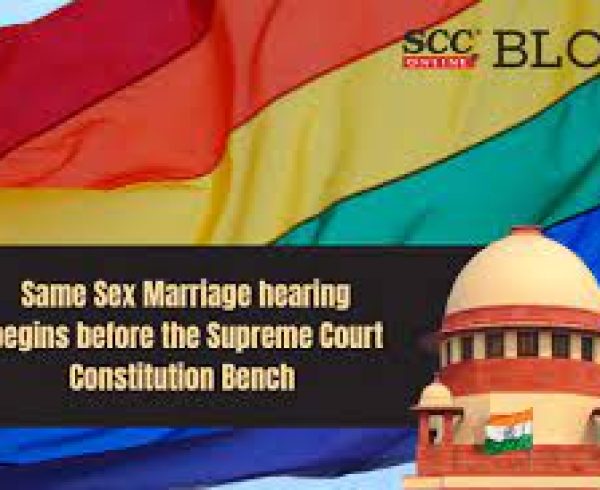The Supreme Court observed that it is desirable that before an accused is subjected to a trial for alleged commission of offence under section 3(1)(x), the utterances made by him in any place within public view are outlined, if not in the F.I.R., but at least in the charge-sheet so as to enable the court to ascertain whether the charge sheet makes out a case of an offence.
Supreme Court: The bench of S. Ravindra Bhat and Dipankar Datta, JJ was dealing with a case under the Scheduled Castes and the Scheduled Tribes (Prevention of Atrocities) Act, 1989 when it went on to explain when an insult takes form of a ‘caste based insult’ and observed that,
“If one calls another an idiot (bewaqoof) or a fool (murkh) or a thief (chor) in any place within public view, this would obviously constitute an act intended to insult or humiliate by user of abusive or offensive language. Even if the same be directed generally to a person, who happens to be a Scheduled Caste or Tribe, per se, it may not be sufficient to attract section 3(1)(x) unless such words are laced with casteist remarks.”
In the case at hand, the appellant was involved in an altercation with the complainant over water drainage, and allegedly verbally abused and physically assaulted the complainant. An FIR was registered against the appellant under sections of the Penal Code and the Scheduled Castes and the Scheduled Tribes (Prevention of Atrocities) Act, 1989. However, the first FIR did not mention the place of occurrence or who was present when the appellant allegedly hurled caste-related abuses. The second FIR suggested that the incident took place at the appellant’s house.
The Court noted that the prosecution relied on the evidence of three witnesses to drive home the charge against the appellant, however, these three witnesses are none other than the complainant, his wife and their son. Neither the first F.I.R. nor the charge-sheet refers to the presence of a member of the public at the place of occurrence. Hence, since the utterances, if any, made by the appellant were not “in any place within public view”, the basic ingredient for attracting section 3(1)(x) of the SC/ST Act was missing/absent.
On the issue of hurling caste related abuses at the complainant with a view to insult or humiliate him, the Court noticed the same does not advance the case of the complainant any further to bring it within the ambit of section 3(1)(x) of the SC/ST Act.
The legislative intent seems to be clear that every insult or intimidation for humiliation to a person would not amount to an offence under section 3(1)(x) of the SC/ST Act unless, of course, such insult or intimidation is targeted at the victim because of he being a member of a particular Scheduled Caste or Tribe. Hence, calling someone an idiot (bewaqoof) or a fool (murkh) or a thief (chor) in any place within public view, would obviously constitute an act intended to insult or humiliate by user of abusive or offensive language, but even if the same is directed generally to a person, who happens to be a Scheduled Caste or Tribe, per se, it may not be sufficient to attract section 3(1)(x) unless such words are laced with casteist remarks.
For the purpose of cases of such nature, the Court observed,
“Since section 18 of the SC/ST Act bars invocation of the court’s jurisdiction under section 438, Cr.PC and having regard to the overriding effect of the SC/ST Act over other laws, it is desirable that before an accused is subjected to a trial for alleged commission of offence under section 3(1)(x), the utterances made by him in any place within public view are outlined, if not in the F.I.R. (which is not required to be an encyclopaedia of all facts and events), but at least in the charge-sheet (which is prepared based either on statements of witnesses recorded in course of investigation or otherwise) so as to enable the court to ascertain whether the charge sheet makes out a case of an offence.”
[Ramesh Chandra Vaishya v. State of Uttar Pradesh, 2023 SCC OnLine SC 668, decided on 19-05-2023]…
Source Url:
https://www.scconline.com/blog/post/2023/05/30/supreme-court-decides-what-constitutes-caste-based-insult/






Leave a Comment